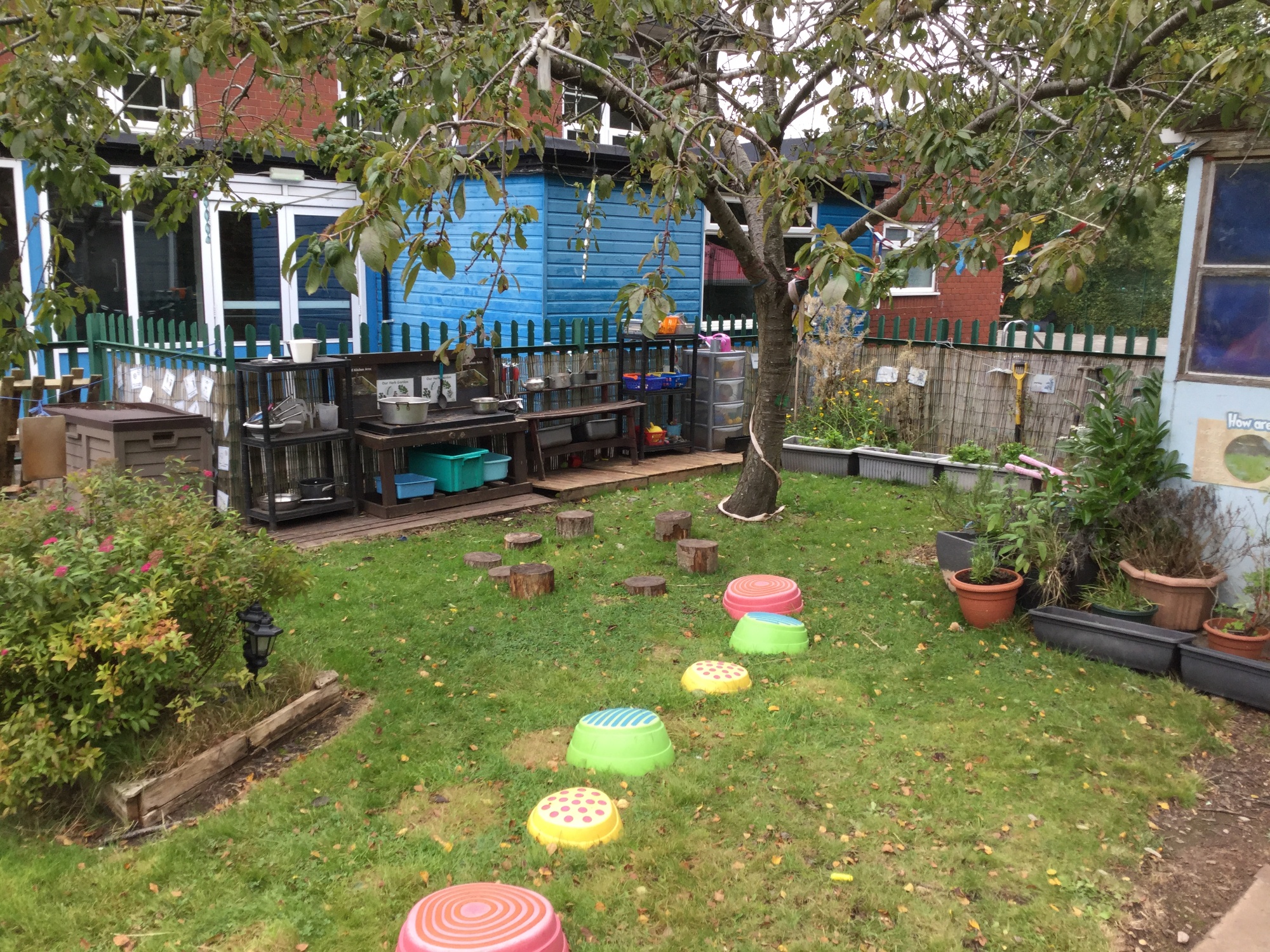Early Years Provision
Our Approach
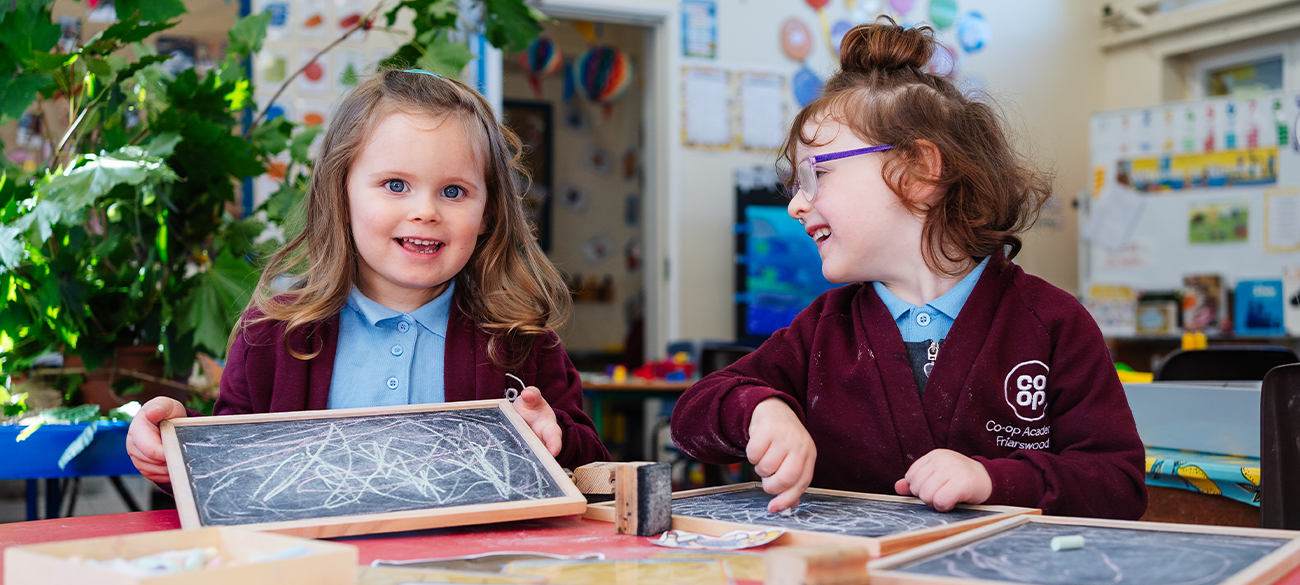
At Co-op Academy Friarswood, our aim is to provide a warm, happy, caring atmosphere where your child feels safe and can develop a positive attitude towards learning throughout our Early Years Foundation Stage.
We strive to lay the foundations for future learning and promote your child’s emotional, intellectual, physical, spiritual and cultural development through a range of experiences that will nurture and promote confidence and independence. We promote high standards of behaviour and help all children to learn to understand each other’s feelings. The children learn to care for and respect themselves and others and are encouraged to be sensitive to the needs and feelings of others.
The Early Years Foundation Stage offers an environment for children to learn through play. Children at this stage are now eagerly seeking information about all exciting aspects of their rapidly expanding world. Play is essential for children’s development, building their confidence as they learn from their experiences which teach them to be creative, to try out new things, ask questions and become imaginative, critical thinkers.
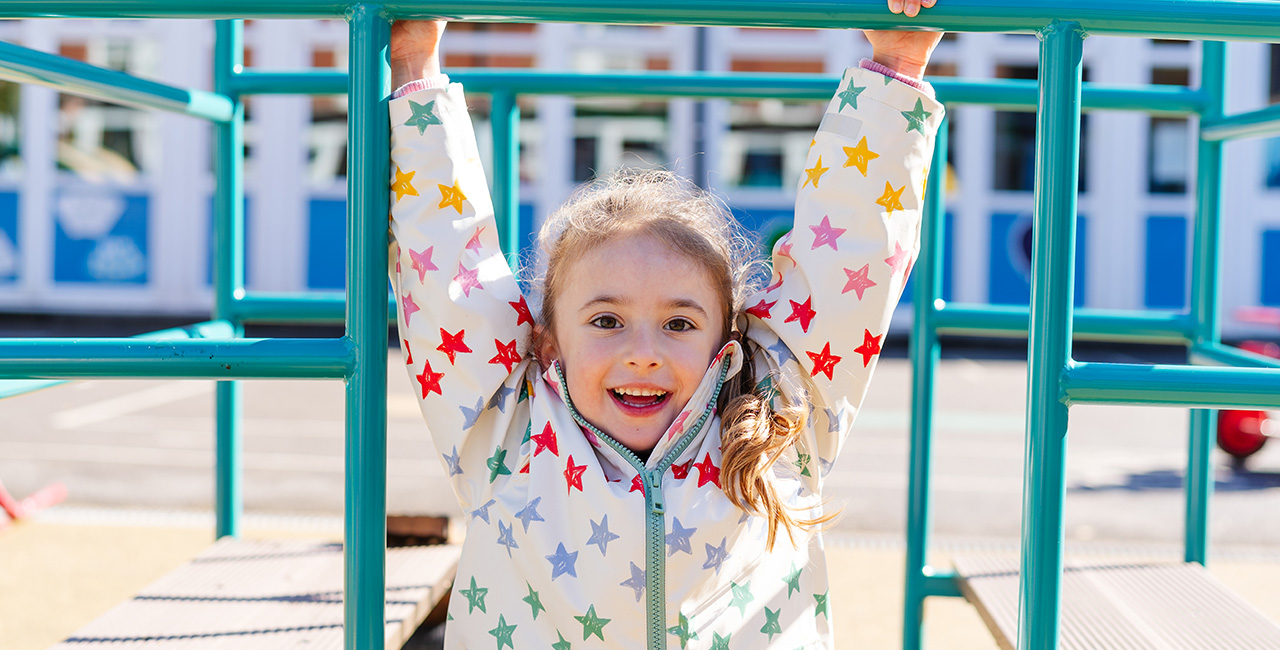
Each area of learning and development is implemented through planned, purposeful play and through a mix of adult-led and child-initiated activity. Children learn by leading their own play, and taking part in play which is guided by adults. The children are encouraged to explore, investigate, discover, create, practise and make learning in our Early Years Foundation Stage a rewarding and enjoyable experience. We endeavour to offer an exciting and stimulating environment using both the outdoors and indoors as a positive learning tool.
We love to work together as a whole Foundation Stage, sharing the outdoor during free flow sessions. Nursery and Reception share topics and plan together to ensure the children receive a holistic learning experience during their time with us.
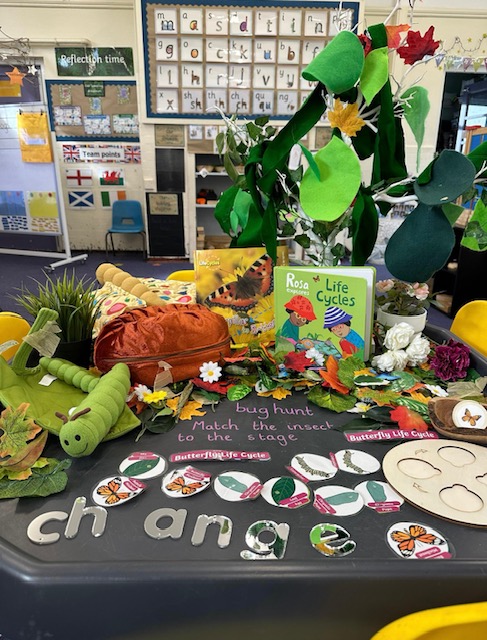
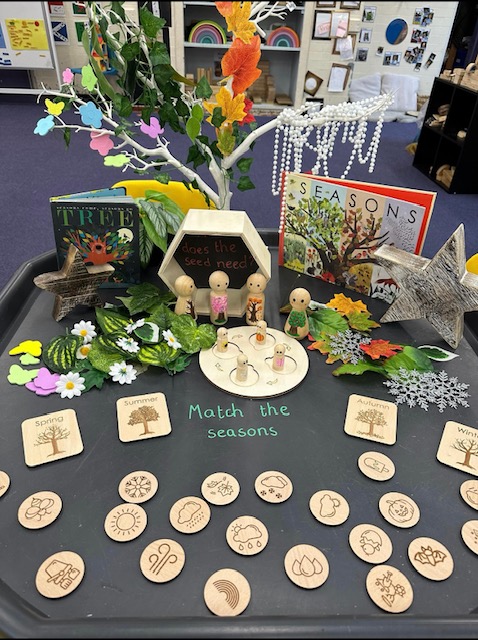
We see our Early Years Foundation Stage learning as an extension of experiences received at home as well as whole new host of experiences, therefore we feel it is most important to work closely with parents and carers and believe that your child’s learning and achievement is something we should all be part of. Parents and carers are kept up to date with their child’s progress and development through parent’s evenings and observations of childrens’ achievements are shared with parents and carers through informal meetings and via Tapestry, an online Learning Journey.
Early Years Curriculum
Our curriculum is planned, delivered and evaluated to ensure that the children receive broad-based experiences in line with the Early Years Foundation stage curriculum. We aim to provide a varied curriculum following children’s needs and interests, and offering a wealth of experiences, which will meet the needs of every individual child and consider the different ways that children learn.
The children are observed and guided in a relaxed way through warm, positive interaction to ensure that the curriculum planned for them builds on the skills that your child already possesses. As children grow older, and as their development allows, it is expected that the balance will gradually shift towards more activities led by adults, to help children prepare for more formal learning, ready for Year 1.
An Early Years Stage Profile is completed for all children throughout the Early Years Foundation Stage. The Profile contains ongoing observation, all relevant records held by the setting and discussions with parents and carers. It aims to provide parents and carers, practitioners and teachers with a well-rounded picture of a child’s knowledge, understanding and abilities, summaries of their progress against expected levels, and their readiness for Reception or Year 1
Our curriculum is based on the Statutory Framework for the Early Years Foundation Stage. This is a comprehensive framework which sets the standards for development, learning and care from birth to 5 years.
Settling In
The first time your child separates from you can be an anxious experience – for both you and your child! However, our Early Years foundation stage is a caring environment and our well-trained staff will help make the whole process much happier and less traumatic.
We hope to arrange a planned visit for each child and their parent to visit us in our outdoor area where you meet with your child’s teachers and learn about the school routines and to inform us of your child’s individual needs.
Our outdoor space
View the Early Years Foundation Stage (EYFS) Framework and more information about the EYFS here.
The areas of learning consist of 3 prime areas:
- Communication and Language.
- Physical Development.
- Personal, Social and Emotional Development.
The 4 specific areas are:
- Literacy.
- Mathematics.
- Understanding the World.
- Expressive Arts and Design.
These are the activities and experiences which must be provided for children:
- Communication and language development involves giving children opportunities to experience a rich language environment; to develop their confidence and skills in expressing themselves; and to speak and listen in a range of situations
- Physical development involves providing opportunities for young children to be active and interactive; and to develop their co-ordination, control, and movement. Children must also be helped to understand the importance of physical activity, and to make healthy choices in relation to food
- Personal, social and emotional development involves helping children to develop a positive sense of themselves, and others; to form positive relationships and develop respect for others; to develop social skills and learn how to manage their feelings; to understand appropriate behaviour in groups; and to have confidence in their own abilities
- Literacy development involves encouraging children to link sounds and letters and to begin to read and write. Children must be given access to a wide range of reading materials (books, poems, and other written materials) to ignite their interest
- Mathematics involves providing children with opportunities to develop and improve their skills in counting, understanding and using numbers, calculating simple addition and subtraction problems; and to describe shapes, spaces, and measure
- Understanding the world involves guiding children to make sense of their physical world and their community through opportunities to explore, observe and find out about people, places, technology and the environment
- Expressive arts and design involves enabling children to explore and play with a wide range of media and materials, as well as providing opportunities and encouragement for sharing their thoughts, ideas and feelings through a variety of activities in art, music, movement, dance, role-play, and design and technology

